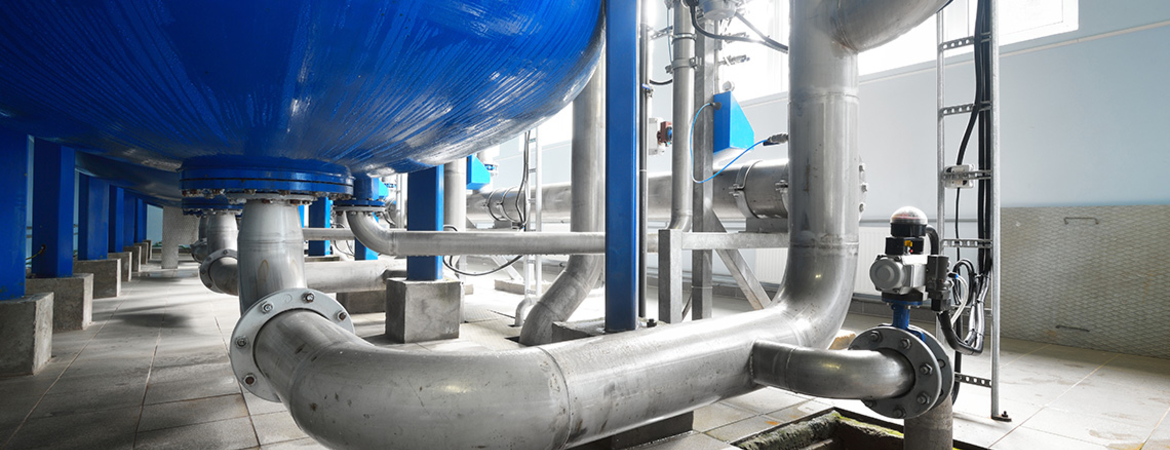Industrial water, also referred to as industrial process water, is the water that is used before being discharged into industrial processes and is not taken from the drinking water circuit. It therefore requires regular checks to prevent material damage and disruptions to operational processes. Industrial water includes:
Raw water
Raw water comes from nature and is untreated water. It comes from natural sources such as groundwater, surface water from rivers and lakes, precipitation water and spring water. Its composition and quality depend on regional conditions. These include, for example, geological conditions, flora and fauna, agriculture, industrial settlements and climatic influences, but also other human influences. Raw water can therefore contain both bacteria and substances that are harmful to the material. Raw water requires pre-treatment for further use.
Make-up water
Make-up water compensates for water loss in industrial processes, for example through evaporation, spray losses or desalination. Make-up water is added, which is often obtained from raw water. It must be treated accordingly to avoid undesirable constituents.
Softened water
"Hard" water, which includes untreated raw and supplementary water, contains more minerals than ordinary water. These are mainly the minerals calcium and magnesium. These minerals have been removed from softened water as dissolved alkaline earth cations Ca2+ and Mg2+. They can bind other ions. This can lead to blockages in pipes and equipment.
Uses and applications
Industrial water is used in many areas, for example as cooling water in machines and plants or in manufacturing processes. Industrial water is also used for cleaning. Steam turbines in power plants are also operated with industrial water. Industrial water is used in the chemical industry, in paper production or in large power plants and plays a central role as process, cooling or boiler water. More and more companies are now also saving water by using process water several times or treating it in-house. Here, too, regular checks are essential.
How to know: The right check for industrial water
Industrial water used in industry must meet certain quality standards, which vary depending on the sector. Monitoring water quality in industrial processes is therefore crucial. It has been proven that regular monitoring of industrial water can mitigate risks and system complications before they become problematic. In addition, for many sectors there are concrete legal requirements for the type of control and the procedure for the investigations.
Pre-Treatment
Raw/Make-Up Water
Raw and Make-Up (MU) water should at least be tested for minimum values. Especially in the light of recent climate changes with droughts and floods, water quality can be significantly affected. Minimum controls are:
